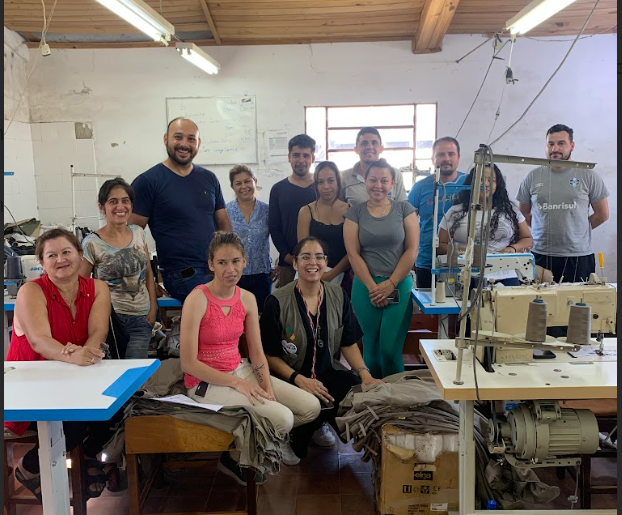Disclaimer:
Please be aware that the content herein is comprised of personal reflections, observations, and insights from our contributors. It is not necessarily exhaustive or authoritative, but rather reflects individual perspectives. While we aim for accuracy, we cannot guarantee the completeness or up-to-date nature of the content.
What is it? A guide based on a diagnostic tool designed to support MSMEs in the garment sector in their continuous improvement processes. This tool is part of the LOCAL program, which promotes territorial competencies for industry, focusing on formalization and improving the competitiveness of MSMEs. The template is completed by technical advisors in collaboration with program participants to organize and record specific actions to be implemented based on identified improvement areas. This facilitates the execution of interventions and monitoring of progress. Who promotes it? The LOCAL program is promoted by UNDP in collaboration with the Ministry of Industry and Commerce (MIC) of Paraguay. What does it involve? The program is based on implementing tailored continuous improvement plans for each garment workshop, which include: Personalized training: Development of training modules in key areas such as business management, finance, marketing, and technical skills related to the garment industry. Mentorship: Assignment of specialized mentors who guide entrepreneurs in implementing improvement strategies and solving operational problems. Technical visits: Regular visits to garment workshops to assess progress, identify areas of opportunity, and offer practical solutions. Specific tasks: Clear objectives and assigned tasks for each workshop, aimed at optimizing production, quality, and operational efficiency. What does it achieve? The program strengthens MSMEs in the garment sector, aiming to facilitate and consolidate connections with anchor companies to drive improvement and formalization. Development Stage: In development Origin and Actors Origin of the solution: It is the result of a process promoted by the public sector in collaboration with United Nations agencies and international development partners. Driving actors: Led by the public sector, with support from UNDP and other international cooperation agencies. Leave No One Behind Socioeconomic base of actors: The program is designed to benefit MSMEs in areas of high economic vulnerability, primarily within quintiles 1 and 2, which represent the most disadvantaged sectors of the population. The actors involved come from low-income segments, especially from rural and peri-urban areas of Paraguay, where MSMEs face significant barriers to formalization and growth. Gender perspective: Although gender inequalities were not directly addressed in the program design, situations emerged that prompted reflection on women’s labor overload due to the double workday, and on power dynamics influenced by male partners, such as jealousy or lack of trust. The program promotes an inclusive approach, encouraging the active participation of women in leadership, development, and decision-making within the garment workshops. It also aims to advance the labor rights of women and girls, ensuring a fairer and more equitable work environment. Lessons Learned Linking MSMEs to anchor companies can create a more predictable environment for small businesses, but it requires that large companies have strong internal capacities and access to external support services. Market volatility and instability at national and regional levels make it difficult for MSMEs to invest confidently, suggesting that public procurement could offer stable demand and promote formalization. Training in conflict management and communication improves authority dynamics within workshops, contributing to a more efficient and pleasant work environment. However, the lack of skilled labor in the industry remains a major barrier. There is strong interest in collaboration and business associations to improve productivity and working conditions, but MSMEs need more support in developing administrative and policy capacities.
 Consent to share form or official link.
Consent to share form or official link.

 5Gender equality
5Gender equality 8Decent work and economic growth
8Decent work and economic growth
Comments
Log in to add a comment or reply.